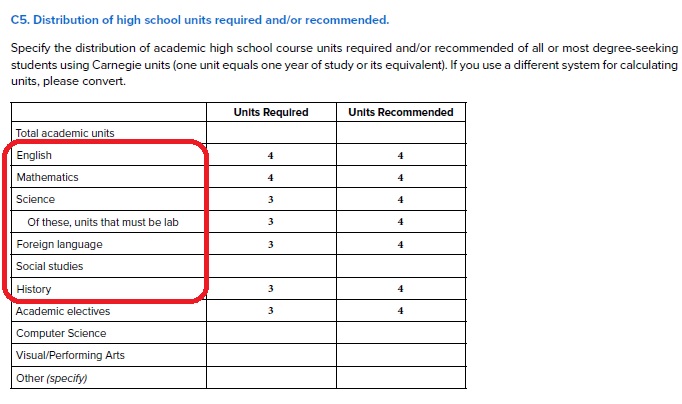Okay, now that we know your cultural background:
You need to immediately lose the Central European mindset of “I need to find out the requirements, fulfil them, and then I’m in”.
Seriously, think of it like dating. You will stand a chance if you can show you’ve got a good education, have serious prospects, are a hard worker, of good character…but you’ll never know whether it’s good enough until you’ve applied and been accepted, and you can have done everything right and will be rejected and you’ll never know why.
The lack of transparency and predictability in how and why top US universities admit their students (called “holistic admission”) may seem, at first, almost incomprehensible.
If applying to these universities is what you really want to do, you need to immerse yourself in the process.
Read threads! Especially on the international students forum.
The one almost hard and fast requirement (and even that can be mitigated for foreign students who may be unable to fulfil them in exactly the way US students can fulfil them) is the table in the PP just above:
4 years of English. (check)
4 years of maths (check)
4 years of a foreign language (sort of…clearly English is your foreign language and German your native language but that is a way the requirement may be adapted for foreign students)
4 years sciences (doesn’t have to be the same all four years): check
4 years of history: yes, you should switch business management for history if at all possible, and that actually goes for admissions in Europe and the UK as well, and I am assuming you’ll want to keep your options open.
It’s okay if only three of those five are at HL, because US universities are familiar with the IB and realise that you may be constrained by the diploma scheduling requirements which may not allow for deviation from the standard 3 HL 3 S L structure.
These requirements refer to your high school years. It may be possible to add 8th grade classes to fulfil the four year requirement, because the IB is considered to be a year ahead of a regular US high school curriculum, but you will not find good info about this on the websites. They may tell you if you ask.
So, what to do for your sixth subject? As mentioned, top universities in the US (and the UK and Europe too, actually) don’t ike seeing pre professional subjects, but rather another hard science or social science. However, if you feel you can show that DT isn’t a “soft option” or not mostly practical but also academically rigorous, cool projects might help with admission for engineering.
Grades? Your mindset shouldn’t be “oh no, I need at least 42 points” but “great, I want to be surrounded by students for whom getting 42 points or better is normal and cool, like it’s for me!”
Also, US universities don’t go in for effortless brilliance (that’s the UK). They don’t care for “meeting a standard” (even a high swndard). They want to see you are a hard worker, that you’re ready to do more and more, that you’ll kill yourself for what you want. The mindset they want to see is “bring it!” (US posters, hold your guns, yes, that is what it’s like from an outside perspective. The competitiveness is barely comprehensible for a European student.)
That goes for the SAT/ACT as well. It’s not a requirement…but submitting an excellent score is another data point for them to assemble into a whole.
Same goes for extracurriculars…they’ll want tangible evidence of excellence, of leadership. Not just that you did them.
And it doesn’t really make sense to go to the trouble of assembling a US application just for the ivies and Ivy+ colleges. If you really want to go to the US, find engineering schools with better chances of admission.
